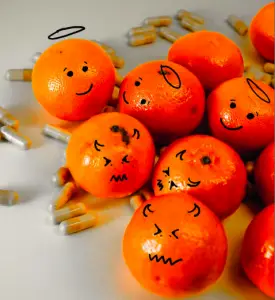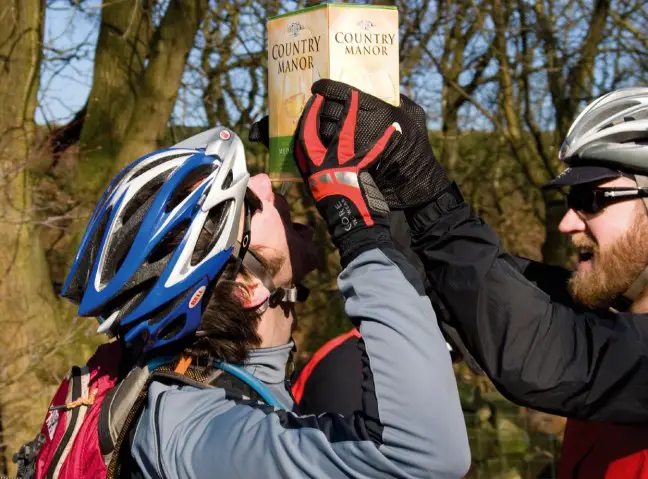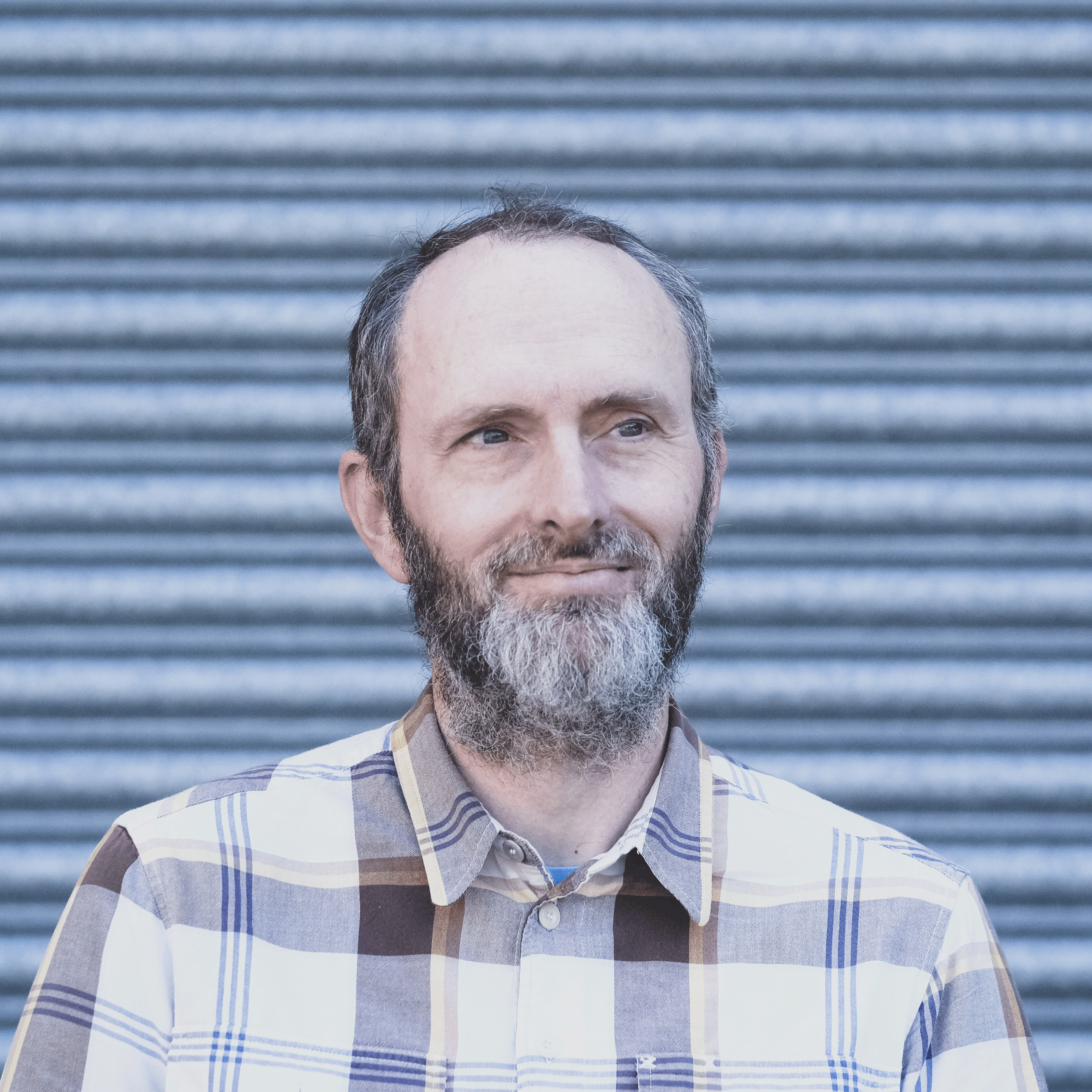
If you’re not ill at the moment, I’m sure you know someone
who is. It’s just that time of year. If I were a little less educated,
I’d swear that satsumas and clementines give you a cold,
because these come into season at the start of December: I eat
about a metric ton of them and then get a nasty cold just in
time for Christmas. I’m convinced it’s not got anything to do with
the Quality Streets, Roses and Celebrations, because that all starts later. As daft as this uneducated theory sounds, I wonder if there might be some substance to it? I believe there is and will explain why in a wee while.
Whether it’s satsuma eating, reduced immune function or the
increased prevalence of nasty bugs, it goes without saying that
Christmas is a bad time for colds and flu. So, if I were to give you
some savvy advice on how to avoid and treat the dreaded lurgy, this
copy of Singletrack might just be the best Christmas present you
could have been given this year?
In order to cover this subject comprehensively, I’ve formulated a
three-pronged attack:
Prevention is better than cure: There’s no point in closing the stable
door after the horse has bolted, or locking the garage door after your
bikes have been nabbed, because you want to do everything in your
power to stop yourself from getting sick in the first place. Avoiding
places where germs lurk is impractical on the whole, but if you go to
work on a stuffy bus or train, you should consider cycling. You’ll get
fitter, be healthier and your exposure to the causes of illness will be
greatly reduced. If you end up going to work with a goldfish bowl on
your head like Michael Jackson though, I reckon you might be taking
it a bit far.
The second thing to do is to strengthen your immunity. If you’ve
got a stronger, more robust immune system the bugs are more
likely to bounce off you, so how do you go about building better
immunity? Firstly, I assume you wouldn’t be reading this mag if you
didn’t do at least some exercise? The problem is that if your exercise
outings are infrequent, every time you do one, your body will kind
of scream metaphorically “What the hell are you doing to me” and
if you’re harbouring some nasty germ, that’ll be the moment it’ll
choose to set up residence. You’ll throw open your doors (figuratively
speaking), put the welcome mat down and it’ll strut in there all
arrogant and proud and say “Nice place this”. It’ll then empty
the kitchen cupboards, drink all your booze and projectile vomit
everywhere. That’s what germs do and regrettably it makes you feel
a bit flat. The most vulnerable time for anyone to pick up a bug is in
the couple of hours post exercise, but this will be more pronounced
if you’re not very fit in the first place. So, although this advice might
be a bit late for this Christmas, next year, go into the festive season
with a bit of physiological conditioning under your belt. The fitter
you are going into Christmas, the more you’ll be able to do without
compromising your immunity.
Whether you consider yourself physically conditioned at the
moment or not, try to avoid public places or people with germs for
that short period after exercise or speak to them in a well ventilated
room. Stop short of quarantining your sick friends and family, because
that’s a bit psycho, but it wouldn’t be overly rude for you not to be
around for an hour or so post exercise if one of your nearest and
dearest has the lurgy. Research also suggests that a recovery drink
or high carbohydrate feed immediately after exercise significantly
reduces your chances of picking up a bug, although the mechanisms
of this are unclear, it’s good practice anyway if you’re wanting to
exercise again in the next couple of days.
You’d have thought that one’s general nutrition would play a role
in immunity wouldn’t you? Well you’d be right. A healthy varied
diet containing plenty of fresh fruit and vegetables should provide
you with the range of nutrients you need to build strong immunity.
If your diet isn’t balanced, you’re going to be missing pieces of the
jigsaw, so it stands to reason that your body’s defences might be
compromised. I realise that I risk being labelled a ‘clog-wearing
hippy’ for protecting the Organic food movement, but it’s a risk I’m
going to have to take, because it’s something I believe passionately
about. Organic food has had its fair share of stick from companies and
movements that have their own selfish interests to protect, but the
bottom line is that organic food has a higher mineral and nutritional
content, which is why it tastes… well like it’s supposed to. A 12-year
study in Germany found significantly higher levels of minerals in
organic food compared with their non-organic counterparts. Various
other studies have consistently shown the same, plus higher levels
of vitamins and less water. One of the reasons that non-organic
vegetables taste so bad is because there’s a lot more water in them, so
they contain a much lower density of the important stuff. Then there are
pesticides, antibiotics and the like. The bottom line is, if you can
afford it; spend your money on organic staple food products like fruit,
veg and meat if possible. I reckon it’s a good investment, perhaps the
best kind of investment in the current economic climate.
The Alistair Darling Diet
If money’s a bit tight, you can either do what I call the ‘Alistair
Darling’ approach and buy organic food now and worry about paying
for it later on, or just eat as healthily as you can but perhaps take a
good multivitamin pill daily. It depends on your political stance I
suppose. Carefully choose your brand of vitamin pill though, because
generally speaking, the better-known (more expensive) brands are
likely to be superior. Unfortunately, looking at the side of the packet
for vitamin/mineral content won’t always provide you with accurate
information. As well as containing the correct amounts of nutrients,
these should be layered in such a way that the nutrients don’t
compete with each other for absorption. By the same token nutrients
that facilitate each other’s absorption like Vitamin C and Iron should
be layered close together.
Can Christmas satsumas actually cause colds?
So, back onto the subject of satsumas. Here’s where my theory kicks
in. I used to value the theory of taking a high dose of Vitamin C on
a daily basis to fend off illness, because of the nutrient’s links with
immunity. I believe that Vitamin C has its place in the whole getting
ill and fending it off process, but we’ll discuss this in the next section.
One of the problems with Vitamin C is that your body can’t store
or stockpile it, so it just flushes out and gets rid of what it doesn’t
need. It therefore stands to reason that if you have a generally low to
moderate intake of Vitamin C, your body’s flushing-out mechanism
is ticking over quite slowly if it’s operating at all. Then, purely for
seasonal gratification, you start ramming the orange fruits down
your neck and your Vitamin C intake goes through the roof. Your
Vit-C flushing mechanisms start pumping away to keep your body
in equilibrium and then after a few days, you run out of fruit! Where
do they all go? So your body keeps flushing and suddenly you find
yourself absolutely stripped of Vitamin C, naked and vulnerable to
attack from the nasty germ thing with your door wide open again,
so to speak. The basis of this theory is subject to the hard evidence
that’s referred to in research texts as ‘rebound scurvy’, which describes
scurvy-type symptoms like sore bleeding gums in subjects who have
taken high doses of Vitamin C for an extended period and then
abruptly ceased their supply. My recommendation is to avoid high
daily doses of this vitamin and just eat healthily.
It goes without saying that ‘enough sleep’ and ‘not too much
stress’ will hold you in good stead too and believe it or not, these
are factors that you do have a great deal of control over. How much
sleep you get is ultimately down to you, it’s just a matter of priorities.
If your work requires you to partake in midnight conference calls
with your Australian colleagues and that’s what pays the mortgage
then something else has control of your sleep patterns, but you’ll be
in the minority. If you’re juggling these commitments with a busy
family life, chances are that your goal of being world XC champion
is going to be somewhat compromised, but let me help you. A little
moto we have at TORQ is ‘Don’t try to control the uncontrollable’.
In other words, if you can’t have an influence on something, let it
run its course, because it’s a lot less stressful not worrying about an
outcome that is going to happen anyway. On the flip side though,
if it is controllable, for god’s sake just get your hands firmly on the
wheel and steer. This too makes life a lot less stressful. Perhaps these
are subjects for another article, but suffice to say, you’ll have a stronger
immune system if you’re well-rested, chilled out and in control.
At the first sign of a tickle
So it’s all gone a bit pear-shaped and despite your best efforts to
build a sound immune system, you’re starting to sniffle and cough.
Everything I’ve mentioned so far still stands, so don’t go to pieces
on me now, but there are a few other things that you should now
consider:
Exercise: First and foremost, cut back on the amount of exercise
you’re doing. There was an exceptional case study involving ‘me’
in Spain when I was running a training camp a few years back.
I arrived with a terrible cold and had to send everyone out on a
familiarisation ride on their own while I went to bed to try to
get over it before the big stuff started the next day. I woke up the
next morning feeling just as bad as I had done the previous day
if not a bit worse and decided that I simply had to ride: I was the
host after all. The weather was terrible and we rode for eight hours
that day. When I got to the five-hour point, riding through a small
Spanish village called Alhurin, I felt my cold leave me and by the
time I got back to base it had completely gone. My not so scientific
explanation for this is that I’d frightened the poor little blighter out
of my body. “I’m not staying inside this bloke, he’s a nutter”. I’d
like to make it clear that I’ve told you this little anecdote for the
purposes amusement and to feed your curiosity, not to encourage
you to follow suit. In fact, had I had something viral, like flu, the
virus could have moved onto my heart and killed me. What you
should do is cut back, keep exercise at low intensity, wear plenty of
clothes if you’re going to venture outside on your bike and sweat
it out on short low intensity rides. If your muscles are aching or if
you’ve got any symptoms below the neck, DO NOT EXERCISE
during the incubation period, it’s just not worth the risk. If in doubt,
just rest.
Vitamin C: Now’s the time to take it. Unlike many other mammals,
which can make their own Vitamin C from glucose, humans can’t.
At times of high stress and illness these animals can synthesise in
excess of 13 grams per day (13,000mg, equivalent to 26 high-dose
Vitamin C tablets). This suggests how important Vitamin C is to
a mammal when it is sick. Although studies using low doses of
Vitamin C during sickness have not proved conclusive, investigations
using much higher levels have proven highly significant. Also,
according to one study in Brazil, the sooner these mega-doses
are taken, the quicker the recovery rate is likely to be. Once the
body’s tissues are saturated with Vitamin C, absorption through
the intestinal wall ceases. You will know when this has happened,
because you will subsequently experience an overwhelming urge
to visit the little person’s room. This laxative effect is damned
inconvenient, but will do you no harm. Use this rather bizarre
concept as a guide and you will probably be surprised at the amount
your body will use. The worse the infection, the more Vitamin C
you will need. Vitamin C (ascorbic acid) tablets are quite cheap and
are usually a 500mg dose each. Start by taking 4-6 per day.
Echinacea: From the daisy family, known as ‘Purple Coneflower’,
Echinacea is a proven immune system stimulant. I suggest taking a
high dose 500mg capsule of Echinacea twice daily and increasing to
three times if symptoms persist. This is a fabulous supplement.
L-Glutamine: Glutamine is the most abundant amino acid in
the body, in a large part because it is needed a lot by the brain,
intestines, kidneys, lungs and immune system and also because you
can manufacture your own. It is actually termed a ‘non-essential
amino acid’, but this can be misleading, because under times of high
exercise stress, if you leave your body to produce its own supply, it
will break down muscle tissue in order to make it available. Logic
dictates that this is not desirable when you are a physically active
person. Therefore, supplementation with L-Glutamine immediately
after exercise stops the body scavenging for an alternative supply
and eating into your well-earned muscle. It also ensures that plenty
of L-Glutamine is available to fuel the immune system. Numerous
studies have considered the effects of L-Glutamine supplementation
on immune function and although the findings are mixed, there
appears to be plenty of evidence to support its worth.
Zinc: All of your body’s resources are stretched when you are fighting
an infection, but Zinc is in particularly high demand at these times.
The UK RDI for Zinc is 9.5mg, although the Americans suggest
15mg. In this case, more isn’t necessarily better, as over consumption
of Zinc on a long term basis can cause Copper deficiency. Unless you
eat a lot of seafood, especially oysters and muscles, it is very unlikely
that you will over-consume Zinc, so I suggest going for 15mg of Zinc
per day.
Cod Liver Oil: A 500mg dose of this supplement contains 110% of
your RDI for Vitamin A (800ug) and 50% of the USA recommended
daily allowance (RDA) for Vitamin D (2.5ug). The Brits haven’t
published any figures for Vitamin D intake as yet. While Vitamin
A has been proven to help support the immune system, Vitamin
D hasn’t, but it is good for your bone health, so there’s a bonus for
you! As Vitamins A and D are fat -soluble, an active cyclist who
is meticulously careful not to over-consume on fatty foods could
easily be deficient in these vitamins. The good news is that is that
the calories in a 1/2 gram serving of Cod Liver Oil are insignificant,
but you still get your vitamin dose. More good news is that Vitamin
C helps to retain Vitamin A within the body and interestingly, Zinc
deficiency impairs the absorption and utilisation of Vitamin A, so all
of these supplements help to support each other. You can take Cod
Liver Oil in capsule form or off a spoon. I recommend the capsules,
because neat Cod Liver Oil tastes like the sludge that gathers on the
bed of the Thames Estuary (so I’m told).
Odourless Garlic Pearls. You can’t overdose on garlic, but fresh garlic or
products that have not had the odour releasing properties removed
can make you very unpopular with your pals. Odourless garlic does
have fewer properties than those present in its natural form, but
your colleagues may not appreciate that explanation. Garlic, as well
as providing circulatory benefits, significantly enhances immune
function and research studies with AIDS sufferers have shown
staggering results in garlic’s favour. Take 100mg per day.
Hydration: This needs no explanation. Just keep drinking plenty of
pure unadulterated water, because when you get a cold you lose
a lot of fluid through the runny stuff that comes out of your nose
and if you suffer like me, you’ll wake up in the middle of the night
drenched from head to foot in sweat.
Hopefully your symptoms will abate quite quickly and when they
do, be sure to back off your supplement doses progressively over a few
days and stick your pots back on the shelf until next time. And then
build your exercise levels back up slowly.
Down and out
Alas, if you’ve got yourself into this sorry state, there’s not really a
lot I can do for you. You won’t feel like exercising, so don’t do that.
If you keep taking the supplements outlined above, you’ll take the
edge of your symptoms and you’ll have a more comfortable existence,
but ultimately you’re just going to have to sit it out I’m afraid. If the
infection has moved onto your chest, increase your dose of garlic, but
this time go for the smelly stuff. Folk won’t mind – you’re ill. Garlic
breath comes from a substance called ‘Alliin’, contained within fresh
garlic and the odour is actually an indication that the supplement is
doing its job. The smell from garlic always materialises quite some
time after it has been consumed. This is because the Alliin odour is
excreted through the lungs after it has been absorbed into the blood.
It is the Alliin odour itself that helps to relieve chesty symptoms due
to its anti-bacterial properties, so, in a sense, the Alliin from the garlic
cleanses and disinfects the lungs. Alliin is only present in fresh garlic
powder and normal garlic pearls, which are usually encapsulated
Garlic powder. Cooked Garlic loses its Alliin, but maintains its other
immune enhancing benefits, as do the odourless Garlic pearls.
So there you have it. How to avoid colds, what to do when you
get one and why not to worry if you smell of garlic when you have a
cold – no one will be coming near you anyway.
From Singletrack Magazine. Click here for subscription information
“Matt Hart runs TORQ Fitness Training and Consultancy www.torqfitness.co.uk. If you’ve enjoyed this article, then TORQ have a special offer for you. If you e-mail them at enquiries@torq.ltd.uk with ‘Free Performance Resource’ entered in the subject heading, they will send you an environmentally friendly PDF version of their 52-page resource which usually retails for £5. In it you will find all sorts of useful information about training and nutrition, so what have you got to lose – fire them across an e-mail.”
Comments (2)
Leave Reply
Post Comment




The tips for what to take to avoid a cold are quality.
I haven’t had a cold in months and months even when flatmates and work colleagues have been having a rough time of it.